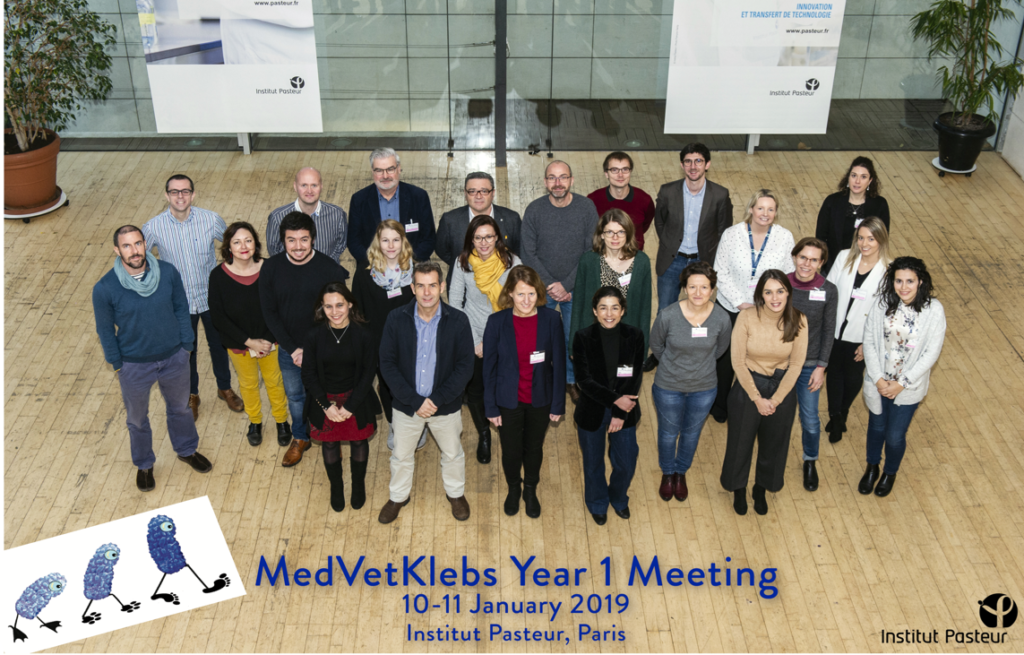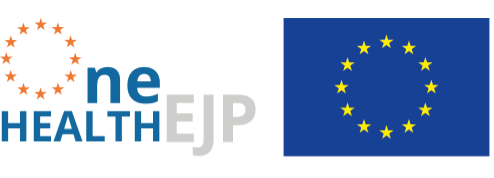MedVetKlebs 1st Year Meeting
The MedVetKlebs project (Klebsiella pneumoniae from Ecology to Source Attribution and Transmission Control) had its mid-term meeting in Institut Pasteur, Paris, on January 11th and 12th, 2019.
What is MedVetKlebs?
MedVetKlebs is a multi-sectorial international project (2018-2019) funded by the One Health European Joint Programme. The project is composed of 10 European institutions from the clinical, animal, food and environmental microbiology sectors. The overarching goal is to advance knowledge on the ecology and transmission of K. pneumoniae in order to define strategies to control its spread.
Why is K. pneumoniae the main focus of this project?
K. pneumoniae is a leading cause of hospital- and community-acquired infections, representing a high threat to public health when associated with multidrug resistance and/or hypervirulence. K. pneumoniae is present in the human and animal gut as colonizer, and is generally described as an ubiquitous pathogen. However, the main reservoirs of K. pneumoniae and the routes by which it is transmitted to animals or humans are still undefined. This is mainly due to the lack of optimized protocols to the detection and identification of K. pneumoniae, and of broad, unbiased sampling outside the clinical setting. These important gaps are addressed by the MedVetKlebs project.
First Year achievements of MedVetKlebs
The MedVetKlebs 1st year (mid-term) meeting was an excellent opportunity to review the achievements of the year and to discuss the future perspectives. As scheduled, this first year was mostly dedicated to the development of novel methods to (i) Isolate K. pneumoniae from complex sources using culture (source specific enrichment; SCAI selective agar); (ii) Identify K. pneumoniae using MALDI-TOF mass spectrometry and real-time PCR. Results were already published (https://doi.org/10.3389/fmicb.2018.03000) or will be presented at the One Health EJP ASM 2019 in Dublin.
Future Perspectives
Now that the protocols were optimized and disseminated, a broad range of niches including soil, plants, food, animals and human carriage are being sampled in an harmonized way. The MedVetKlebs 2nd year will thereby advance knowledge on K. pneumoniae ecology and transmission, ultimately contributing to improve public and animal health through a better control of K. pneumoniae infections.

-Sylvain Brisse


